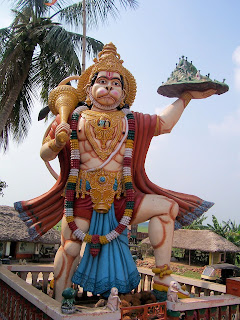Feature
National Day Voters: strengthening the commitment to democracy
7TH will celebrate the National Day voters Wednesday, January 25th. Established in 2011 in memory of the founding day of the election commission in India. It was on January 25, 1950, on the eve of the first day of the Republic, was born to the Election Commission. But it was the itinerary in the future that history is determined by a decision of the National Day of the voters. The declared aim to increase the number of voters, especially those who have recently suffered 18 years.
Reduction of the Constitution Act of 1988 (Seventy-First Amendment), the minimum voting age from 21 to 18 years, in response to public demand for long. As a result, it was 35700000 young (18-21 years) are able to exercise their right to vote in the general election in the November 10, 1989.
But the mission was far from complete. During the two decades it did not exactly encouraging. Responded the young eligible voters restraint they have been recorded. In some cases it may be up to 20 to 25 percent. Since the registration and voting is voluntary, not mandatory, it can persuade the Electoral Commission only. But the priority for the committee to conduct free and fair elections. This in itself is a long and difficult task.
While voters tend to look at the election, as happened, an elongated process of the Commission. Publication of the notice of the announcement of the results, the election is a long process. Implementation of elections in a large country and the population density, such as India a daunting task. After that, the Committee to combat the misuse of money and muscle power.
As for the voters, creating a clean electoral list (in accordance with Articles 11 and 62 of the law on the representation of individuals, 1951), an error free duplication and disqualification remains a priority for the Commission. I left the mobilization of voters in the election campaign of the various political parties. Each political party has made, of course every effort to attract voters to vote in their favor. But there was little institutional campaign to persuade voters to vote in favor of civil duty and commitment to democracy.
Some estimate that the increase in literacy automatically lead to a vote a higher rate. You should not accommodate this complacency. In the first general elections in India (1951-1952), and the overall percentage of the vote 51.15. It was considered "unsatisfactory". He said that the literacy rate is generally at the time not to exceed 17%. However, the percentage of the vote was a sharp rise in literacy. In 2009, it voted less than 60% of registered voters in the 2011 India census revealed that the literacy rate was 74%.
In 2009, the Electoral Commission has taken a Jewish Christian role to improve voter participation. The Electoral Commission has developed a comprehensive program called SVEEP (or systematic educate voters and electoral participation). Two of the logos, invented after that committee, and capture the spirit of SVEEP - "comprehensive and qualitative participation" and "Do not leave it to the voters behind."
SVEEP and has, for the first time, voter education program structured mode. Identify all stakeholders, whether individuals or institutions. Documenta aspects of deficiencies in dilatory participation of the voter registration and voting. These can be in terms of gender, region, socio-economic status, and health conditions, education, labor migration, language, etc. The idea is to offer customized solutions based on these results. It replaces the traditional bureaucratic intervention that sociological intervention. The SVEEP all Indian citizens to vote. Even a minor child or a girl is the voters in the future, you must be aware of now. That is why working on educational institutions.
Recovery of voters hold less than 65% (of registered voters) may not be unique to India. However, the political scientists do not see this as the right direction. A high percentage of the vote means a vibrant democracy. A small percentage of the vote indicate an indifferent society politically. There is a potential risk that disruptive forces are trying to exploit the situation to tarnish the reputation of democracy itself.


Comments
Post a Comment
Comment Form